Previous page

Planning a conference can cost a lot of money. Make sure your organization is prepared for the costs of hosting a conference and take these 12 tips into consideration to save money:
- Shop Around for a Venue: Take your time looking for the right venue. Look at local venues first as that will save you money on travel. Don’t pick the nicest hotel in town. You may be surprised at what some of the smaller-name spaces can offer. Look at a variety of spaces, not just hotels.
- Off-Season Times: When scheduling your conference find out the dates for off-season pricing. Off-season rates will be much cheaper than peak times. You will be able to save on your venue and your attendees will be able to save on their lodging and dining.
- Negotiate: Don’t settle on the first number they give you. The venue wants you just as much as you want them. Take the time to negotiate prices and come up with the best number that is both reasonable for you and for them.
- Sponsors and Partnerships: Find sponsors to help fund your conference. In exchange for their sponsorship, you can put their name and logos on your print materials, e-mails, and social platforms. Form partnerships with your vendors, the hotel, the caterers, etc. Offer to promote them on your marketing materials in exchange for a reduced rate.
- Use Social Media to Market:-Market your event months in advance using social media platforms such as Facebook, Twitter, LinkedIn, and/or Google+. Social platforms are free and have the potential to reach hundreds of thousands of potential attendees.
- Signage: Signage can be very expensive. When purchasing signage for your event make sure you can reuse it. Try to avoid putting dates and locations on the signage. Use your logo and your tag line and, if possible, make the details of the event editable.
- Go Green: Gone are the days when we give attendees a big binder full of paper. Let them know where on your website they can find the slides to the presentation or the bios of the presenters. Give them clear directions on where to get the information should they want to print it out. This will save you money on printing and paper.
- Save on Centerpieces: No need to buy extravagant floral arrangements or fancy centerpieces. You can be very creative with glass vases from the Dollar Store and some pretty, colorful objects inside. You can also create centerpieces using promotional items such as coffee mugs with your logo or fill the vases up with stress balls that have your logo on them. Encourage attendees to take home the centerpieces and continue to promote your brand.
- Know Your Numbers: When it comes to serving coffee or food make sure you know exactly how many people are attending your conference. When ordering food order less than what you need. There will inevitably be some attendees who don’t eat or will eat some place else. Be sure you have enough coffee and find out if the venue charges by the cup or the carafe. Coffee is one thing you do not want to run out of. Consider using custom questions in your call-for-proposals or ticket registration to determine quantities.
- Reuse, Recycle: Have a drawing! After the conference, ask everyone to turn in their plastic name badges.Then randomly draw 2 or 3 names and give them a prize. This will motivate people to return their badges and allow you to reuse them for your next event!

From talking to event planners who have used BusyConf, we’ve noticed that one of the hardest parts of managing an event is marketing it. While the best way to market your event depends on who your target market is, what type of event you’re planning, and even the location of the event, the basic guidelines remain the same. Here are some event marketing dos and don’ts to help get you started.
Do…Be Transparent
Share information on speakers, sessions, and tracks, as much as you can. Attendees want to know exactly what they’re in for, and giving them a good amount of information on the event will help them make informed decisions on whether or not they want to attend your event.
Don’t…Spam
No one likes spam. Sending a bunch of emails to potential attendees with generic and non personal content isn’t likely to convince them to attend your event. In fact, it’ll probably ruin any chance you had of turning them into attendees.
Do…Use Facebook Ads
Facebook ads let you target your ideal attendees by location, occupation, age, and other factors. While advertising on Facebook may seem expensive, setting you’re daily limit to $5 - $10 lets you experiment until you find out what works best for you.
Don’t…Make Things Hard for Attendees
Bad websites, hidden information, and long registration processes make it hard on attendees. If someone wants to attend your event, or wants to find information on your event, make it easy for them to do so. Be transparent with information and use tools that simplify things for attendees.
Some things that cause attendees to abandon the registration page include long multi-page registration processes, slow registration pages, and no support for buying multiple tickets at the same time. We built BusyConf to make it easier for attendees. In fact, 88% of events using BusyConf sell out.
Do…Start Blogging
Blogging is the single best thing you can do to market your event. You can blog about your event, your industry, what you do, and what you know. Just start blogging. Once you’re blogging consistently, you can start writing content that appeals to your attendees.
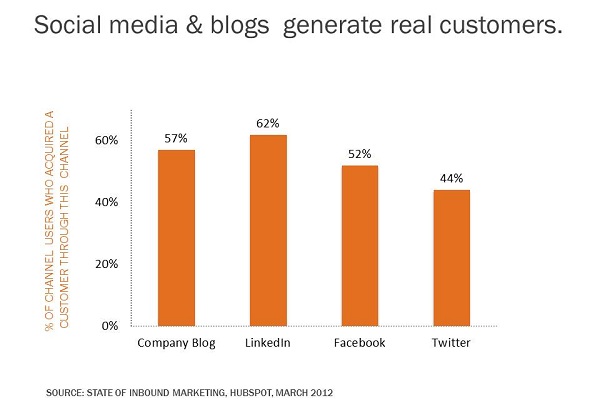
Don’t…Waste Time on the Wrong Social Networks
If you’re target market consists of pharmaceutical exectuvies, then Pinterest probably isn’t the best social network to pour time and effort into. Find out which networks your target market uses and focus on that.
Do…Use LinkedIn
Especially if your event is a business, medical, or educational conference. If you’re running a professional event, chances are you’re ideal attendees use LinkedIn, which makes LinkedIn the top social network to focus on when marketing your event.
Don’t…Market to Everyone
Niches are good. Don’t waste time and effort trying to market to people who wouldn’t benefit from attending your event. Engineering students probably don’t want to attend a law conference, and for good reason. They simply would not benefit much by attending the event. Marketing is about providing value, and chasing after the wrong people makes it hard to do so.
Do…Use Video
Services like EventCommercials and PowToon make it possible for anyone to make a video to promote their event. Hiring a professional isn’t necessary. With simple tools available, there is no excuse for not using video to promote your event. Videos are shared more than any other type of content, and for obvious reasons. Videos are easily digestible and communicate information effectively.
Don’t…Make It All About You
Marketing is about providing value. This doesn’t mean promoting your event anywhere you can. Sometimes the best way to market an event is by not mentioning it at all, and instead focusing on adding value to a discussion. Share your opinion or curate content with a focus on actually being helpful. Of course it’s necessary to plug your event every now and then, but providing value should come first.
Do…Track Interactions
If you don’t track website visits and interactions using Google Analytics or something similar then it’s hard to see the benefits of blogging and using social media. Tracking interactions gives you actionable statistics you can use to improve your event marketing efforts. BusyConf lets you integrate with Google Analytics so you can see just how much traffic you’re getting and where it’s coming from. Statistics help you make data driven decisions when optimizing your marketing efforts.

When organizing a large scale event for your company, not only do you have to build the event, but you also have to market your event. If you haven’t thought about a conference planning tool look at BusyConf. BusyConf can help you get everything in place and run smoothly. You can send out professional call for proposals, sell tickets, and create your schedule all on one easy platform.
The next step is to begin marketing your event. Social media can, and should, play a huge roll when it comes to marketing your next event. The great part about social media is most of it is free. If you know how to use it well, it can be a critical part of your marketing strategy. Social media will help get the word out about your event, help you sell tickets, and create enough buzz that people will be looking forward to your event year after year. Here are a few easy tips and tricks to consider when promoting your event using social media.
Facebook
Facebook is still one of the most widely used social media platforms. Facebook has the most diverse audience of any of the social media platforms, and now with hashtags, you can easily be found through Graph Search. Facebook is a place to have a conversation and build community. Facebook has 955 million active users so you really don’t want to miss your chance to promote your event on Facebook!
Before the Event: Post information, links, and call-to-actions regarding your event in status updates. Make it fun. Let people know all the details. Tell them what they will learn at your event, and give them direction as to where to go to sign up. Always post a link to your website or whichever platform you are using to register attendees. Facebook is now using hashtags as well. It is very similar to the hashtags you use on Twitter so be sure to add those hashtags into your status updates when posting about your event.
Create a Facebook Page: If this is going to be a big event, why not have your own page? This page would be dedicated to your event. You can post about the type of speakers you are looking for and gain insight from your audience as to what they would like to cover at the event. Showcase your sponsors, volunteers, and speakers. If this is a re-occurring event, show pictures from past years. Once you have a business page for your event you can create an event from your page. You can share this event with all of your fans and friends on Facebook. People can RSVP, make comments, and even ask questions.
If you have the budget, you can purchase a Facebook ad to run for a month or two before your event. Set your daily limit at around $5.00 and have multiple versions of the ad. See which version works best and document that for future reference. You can set your ad to target a specific demographic, age, and location.
Learn more about Facebook ads.
Google+
Google+ is still the new kid on the block but is quickly gaining speed. Google+ posts will follow you across all of Google’s products. Google+ posts also have a much longer shelf-life than Facebook or Twitter. This means that after a few days your Facebook post will be buried and hard to locate. But on Google+ your post is always searchable by someone in your network.
Before the Event: There is a different crowd on Google+ than Facebook so it might be wise to promote your event on Google+ as well. This will branch out your circle and hopefully reach some potential attendees that you wouldn’t find on Facebook. Share your event, pictures, details, and website on Google+ just as you would Facebook. You can tag other organizations, sponsors, or volunteers so they will be sure to see the post as well. Ask people to share with their circles and help spread the word.
During the Event: In this day and age, it is very easy to share status updates and posts from just about anywhere. Make sure you have the Google+ app on your iPhone or iPad and share updates to your circles about what you are learning at the event. Tell them about the amazing keynote speaker who received a standing ovation. You can also add pictures and have fun with it. Entice those who didn’t attend to want to attend next year.
After the Event: Same as with Twitter or Facebook you will want to continue to thank your sponsors, speakers, volunteers, and attendees. Post pictures of the event and ask for feedback.
Twitter is a micro blogging site that allows news and conversations to be delivered in real time. Many businesses have dismissed Twitter simply because they do not understand how it works. Twitter currently has 465 million accounts and boast 175 million tweets a day. You don’t want to miss out on a chance to reach millions of people!
Before the Event: Create a hashtag on Twitter for your event and use this same hashtag with every tweet that goes out between now, during, and after your event. This will help people locate your event and find the information they need. Ask your followers questions, share with them who will be speaking, and ask them to retweet your posts to spread the word. You can even have a drawing for a free ticket to anyone who tweets or retweets about your event.
During the Event: Twitter is great in that during the event you cannot tweet too much. So pull out that phone and tweet away! Tweet a funny question you heard, tweet a powerful statement made by the speaker, tweet about the amazing coffee. Use that same hashtag to let people know about the next speaker or an interesting take-away from a presentation. You can have attendees tweet as a way to ask their questions. Make sure they use the designated hashtag so that you can easily find their tweet. You will want all of your print materials to have the hashtag written out so people know what to search for and what to use when tweeting. It would also be wise to tell all of your speakers what the designated hashtag will be so they can tweet as well and/or tell the audience about the hashtag.
After the Event: Continue to tweet interesting stats, figures, and statements about the event. Thank your sponsors. Thank your attendees. Ask for feedback. Which speaker did the attendees enjoy the most? What topics did they wish were covered but were not? How can you improve on next years event? Tweet pictures from the event and mention others. Remember to use the hashtag!
Learn more about hashtags.
As with any social media platform and campaign consistency is key. Be sure to post about your event at least once day. Find out when your audience is most likely to be online. It will vary for each platform. Make each post, share, or tweet interesting and share-worthy. Entice your audience. Show them why your event is the place to be.
And above all else, have fun! Social media is about engaging and having a conversation . Make your posts memorable and colorful and people will want to go to your event! You will need your whole team on board if you want to truly make an impact on social media. If all of this social media buzz seems a bit too overwhelming, consult a social media consultant to help you put all the pieces together. Good luck!
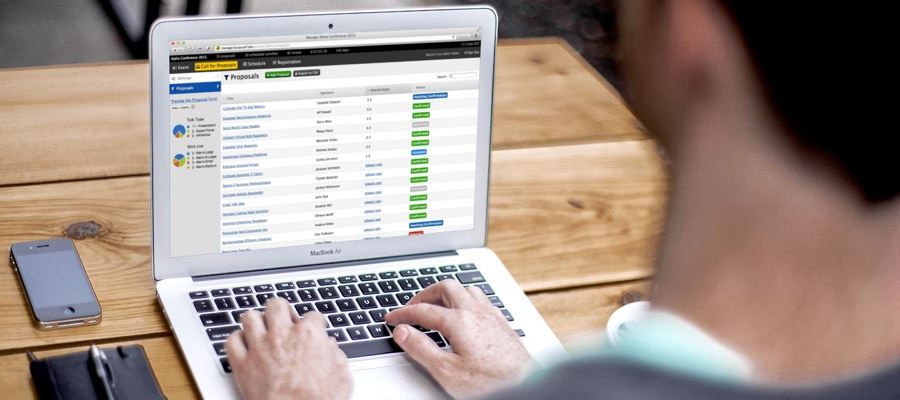
Planning a conference is no easy feat. It takes a lot of time, money, and energy. It must be planned down to the second. What if you had a tool that put everything you needed right at your fingertips? Now you do. BusyConf is a one-stop-shop that allows you to organize, plan, and create your event using one simple platform.
1) A Simple Event Planner
Planning a conference can seem like a logistical nightmare. At least that is what planning a conference may seem like to a novice or even expert planner. Well, get ready to say goodbye to the days of endless excel sheets, e-mails, word documents, and pdf files. With BusyConf, everything is in one place. Using the BusyConf platform, you can create schedules, share ideas with your team, and even sell tickets. You can also keep track of attendees and share information with them as the event gets closer.
When you’re looking for the perfect speaker for your next conference, you’re probably going to put out a call for proposals. Call for proposals are usually set up through your business website or another online service. The conference planner directs all respondents to an e-mail address. That e-mail address is then inundated with e-mails. Each e-mail has an attachment that must be printed and reviewed. Each e-mail must be responded to and followed up. Sounds a bit overwhelming, doesn’t it? Well, what if everything was in one place? What if the tools, the proposals, the requests, and the content was all in one location? It would make your job a whole lot easier. BusyConf offers just that service. BusyConf offers pre-built and customizable call for proposal forms. The BusyConf platform allows you to set up, request, and review call for proposals directly on your own portal. With BusyConf, your colleagues can view and comment on the proposals, and together, you can select the best ones.
3) Online Schedules
Don’t you hate it when you get to an event and you realize you forgot to print out the schedule? Save money on printing while giving your attendees something to rave about with BusyConf’s online schedules. BusyConf offers online schedules that are mobile-friendly and can be seen on almost any device. No WiFi? No problem. The schedules and programs can be viewed with or without internet connection on any mobile device such as a smart phone or tablet.
4) Online Registration
Believe it or not, there are still some conferences out there that require you to print the registration form and mail it in with your check or money order. Save that stamp and use BusyConf’s seamless online registration tool. Online registration has never been so simple. BusyConf will help you create customized registration forms and tickets. Handle everything from early bird registration to last minute refunds.
5) Online Payment
No more processing and depositing checks. With BusyConf, you can accept all major forms of payment directly online. The platform allows you to keep track of all transactions and issue refunds or discounts.
Sounds pretty simple, right? Everything you need in one seamless and effortless platform. BusyConf realizes that time is money and there is often a shortage of both. Both the conference planners and attendees have a positive experience. To learn more about BusyConf, visit BusyConf.com or e-mail .

1) Show them Your Setup
Speakers have to prepare their presentations for viewing on your projectors. If their Powerpoint or Keynote presentation was created in a different resolution, it may be resized or harder to see. To ensure that this doesn’t happen, let potential speakers know what resolution their presentations will be shown in. You can put this on your call for proposals so that potential speakers know exactly how to prepare for their talk right when they submit their proposals. In case your call for proposals is opened before your venue and equipment are booked, you can ask speakers directly what resolution they prefer.
2) Avoid Tech Failures
If anything goes wrong while a speaker is presenting, it will not only reflect badly on your event, but also on the speaker. Some speakers are already stressed or nervous about their presentation, and a technical failure will only make this worse. Technical failures can be avoided almost all the time, and taking the time to test your setup will minimize technology related issues. Make sure you have extra cables and chargers in case a speaker’s computer isn’t compatible with what you currently have.
Keep this short list of common tech failures and fixes at conferences in mind when planning your next event.
Issue: Projector has a different resolution or aspect ratio than the presentation.
Prevention: Make sure speakers know the dimensions their presentation will be shown in.
Issue: Cables don’t fit speaker’s computer.
Prevention: Send out an email to speakers with information on the setup your conference has, including cables, chargers, projectors, and screens.
Issue: Speaker has computer errors and can’t open his presentation file.
Prevention: Ask speakers to send their presentations to you in advance, then store these in DropBox just in case.
3) Make it Personal
While larger conferences can give their speakers perks such as a chauffeur to and from the airport, smaller conferences can still go the extra mile and make their speakers happy while on a budget. Personal touches such as picking up an important speaker from the airport yourself, sending them handwritten thank you letters, or simply thanking them in person for a great talk can go a long way in making speakers happy. Most speakers present at multiple conferences each year; what can you do to make them remember your event?
4) Make them Famous
Everybody loves to be promoted and marketed. You can help out speakers by making it easy for attendees to find more information on speakers by having a detailed bio and contact info either on your conference website or on your schedule. Treat your speakers like your sponsors and put their faces on your website, social media profiles, and marketing graphics. Boost their business by promoting them.
5) Simplify the Submission Process
Making speakers jump through hoops just to submit a talk proposal is a sure way to earn their frustration. From making speakers print and snail mail their proposals to asking long and unnecessary questions, conference organizers make a lot of mistakes that turn speakers away. A simple and effortless submission process will increase the number of proposals you receive and save speakers time and frustration.
6) Throw a Speaker Dinner
Organizing a dinner for speakers before conferences is almost mandatory for conference organizers. Speaker dinners are a great way for speakers to meet each other and do some pre-conference networking. All speakers are naturally nervous before conferences, even professionals, and speaker dinners offer speakers a chance to talk to each other and share presentation tips and advice. Speakers have the opportunity to bounce ideas and themes off of each other. With speakers on the same page, the overall quality of your conference will increase.
7) Give them a Good Introduction
No one wants to be the guy who has to quiet down a loud audience. Before speakers go on stage and present, give them a good introduction by quieting the audience and giving a short overview of who the speaker is and what they will be talking about. This will help the attendees know what they’re in for and will give the speaker a nice starting point for their talk. Making speakers introduce themselves can take time away from the presentation and be a daunting task for a first time speaker.
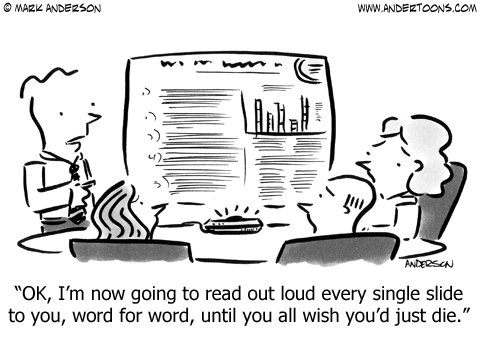
Congratulations! You have been asked to speak at a conference. That is a great accomplishment and an amazing opportunity to introduce yourself and make some new connections. Whether this is your first conference, or your tenth conference here are 5 mistakes you will want to avoid when speaking:
Not Rehearsing Your Speech
You may have given this speech a few times to a small group but never to a large group in an auditorium with a podium, microphone, and a huge light beaming at your eyes. Practice! Ask the conference planner if you can have access to the room in which you will be speaking, even if it is just for 30 minutes. A dry run can save you in the long run and can eliminate any unwanted surprises.
Forgetting to Do Your Homework
Who is hosting the conference? Who are the other speakers? Who is going to be in the audience? You may also be asked questions from the audience. Knowing who you are speaking to and what their background is will help you answer their questions with more accuracy. It will also show the audience that you took the time to learn more about their background, their interests, and their experiences.
Missing Network Opportunities
Don’t run to your room between sessions for a quick nap or jump on your laptop to avoid talking to people. You never know who you might meet in line at the coffee bar or just sitting in the lobby between sessions. Make sure to have plenty of business cards and/or flyers on you. If you have many friends at this conference, it is fine to sit with them from time to time, but try to branch out. Make a goal to make at least 2 new connections every day.
Showing up With a Bad Attitude
Ok, so you know you were not the first choice for speaking about your industry. Get over it. You are here, and it is time to make them thankful they picked you. Showing up with a bad attitude will come out in your presentation, in your body language, and in your face. So, whatever happened yesterday at work or however you truly feel about the conference, leave it at home. It is time to dazzle your audience with your knowledge and charm!
Reading From Your Slides
Slide shows are great for making points and showing pictures. They can also be used for embedding videos, showing graphs and polls, and for contact information, but try not to read from each slide directly. People are there to hear you speak and to listen to you share your wisdom and experience. They can read your slides later. Use the slides as reminders of key points you want to make but don’t be afraid to go off script. Involve your audience too. Asking your audience for insight before delving into a topic will help you gain perspective as to what the audience may already know.
These are just 5 mistakes you do not want to make as a speaker at a conference. Keep them in mind. Hopefully you are excited about this opportunity and looking forward to putting on a great speech. Be prepared, do your homework, and show up feeling your best, and you should be just fine!
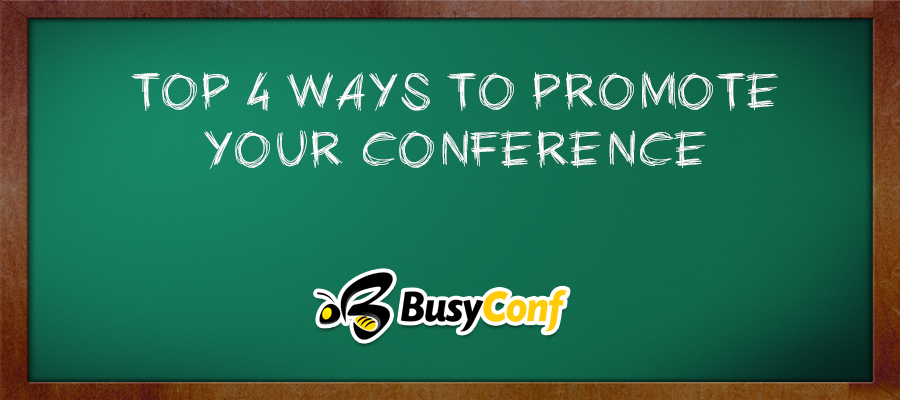
Good promotion is a necessary part of planning a great conference. With so
many conferences being held, you have to promote your conference well in order
to attract attendees. People need to know about your conference in order to
attend, and promotion ensures that people interested in your conference are
exposed to it. Here are 4 great ways to promote your next conference.
Promoting your conference using social media is a no-brainer. Social media
allows you to communicate with people who would be interested in your
conference with ease. Even if your conference is small and locally based,
social media is a valuable tool. Twitter and Facebook allow you to share your
location when posting. This will help you promote your conference locally.
In order to promote your conference with social media effectively, you need to
optimize for sharing. That means ensuring that your ticket registration page
and schedule can be shared easily. Your conference registration page should
not be overly complicated and should have a good amount of information. Long
and complicated registration pages hurt your ticket sales. If a potential
attendee stumbles upon your ticket registration, you want them to know exactly
what the conference is about.
Many conferences choose to use hashtags to promote their event. This is
another great tool that you should be using. Hashtags not only help promote
your conference but they help attendees network and share with each other even
after the conference is over. Good conference hashtags are short and include
the conference year. Remember, people only have 140 characters, and your
hashtag should be only a small part of that.
Another new and exciting addition to the social media line up is Lanyrd, a
social conference directory. Adding your conference to Lanyrd is absolutely
necessary. The earlier you sign up, the better. With Lanyrd, potential
attendees can discover your conference and other conferences relevant to their
interests. People looking for conferences to attend can browse by topic and
location.
Start Early
Start planning and promoting your conference as early as you can. This gives
attendees more exposure to your conference and more time to prepare for
it. When you start early, you can sell early bird tickets at a discount to
encourage more registrations. Starting early also gives you more time to build
a social media presence and plan the best conference possible.
Blog
Blogging is a great way to keep people updated on your conference. You should
blog about your conference and about the industry. If you’re planning a
conference on education, it is a good idea to share news on education
technology and blog on how you’re planning your conference. Did a new speaker
commit to your conference? Blog about it.
Having a blog is also valuable for social media. Every time your blog post is
shared via Twitter or Facebook, your conference is promoted. Blogging can also
help increase the search engine visibility of your conference. When someone
searches for a conference on a specific topic, you want them to see your event
website. This will help increase attendance at your event.
Most conference planners know that allowing companies to sponsor your event
will give you a larger budget, but the promotional benefits of a sponsorship
are often overlooked. When a company or organization sponsors you, their
success is tied to your success, and they will do whatever they can to help
promote your event. Most sponsors will actively promote your event on their
social media pages. If one of your sponsors is not doing this, chances are
they will gladly do so if you ask them to. The larger your event is, the more
promotion your sponsors get.
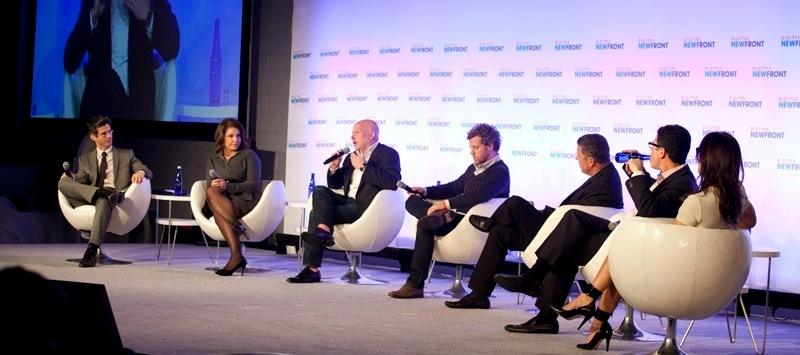
A lot of conferences will offer a session with a panel. A panel is typically a
group of speakers who come to together to discuss a certain topic. A panel
could be a group of professionals that all share the same expertise, or
perhaps, each bring a unique talent to the table. Better yet, a panel can be
made up of rivals or experts who have very different opinions and share
opposing views. Sometimes, the more diverse you can make the panel, the more
interesting it is for your audience. However, it could get messy. Here are
several tips on how to rock a speaker panel at your next event:
Have a Good Moderator: The moderator can really make or break your panel
discussion. You want someone who has moderated panels before. He needs to be
well versed on the topic and know something about each panelist. A moderator
needs to be a guide, not an entertainer. The audience is not there to hear the
moderator. The moderator needs to be able to move the conversation along. The
moderator must make sure that every panelist gets adequate time to speak. A
good moderator should always stay neutral. The moderator is not there to be an
expert or part of the panel. He is not there to show the audience how much
knowledge he has. He is simply there to moderate. A moderator should be firm
and direct, yet personable.
Set Your Stage: Many conferences set up their panels behind long
conference tables with big thick table cloths. The moderator then looms over
them, usually behind a podium. Sounds impersonal, doesn’t it? Instead of
closing off your panel from the audience, invite them to sit in chairs close
to the front of the stage. Make sure everyone has a microphone, and make sure
that the moderator is close to the panelists but not so close as to confuse
them with the panelists.
Involve Your Audience: Many times, panels can start off boring and then go
from bad to worse. They may start out strong, and then, within 10 minutes, the
audience is doodling or checking phones. Get the audience involved early. Poll
the audience before the panelists even begin. Have members of the audience
stand up if they have a Twitter account or have been on a panel
before. Whatever the question may be, get the audience involved and
interested. This will set the stage for the rest of the event. You want your
audience to know it is are part of this discussion.
Size of Panel: The size of the panel is critical. Too small of a panel, and
it may as well be a key note or solo presentation. Too large of a panel, and
you could have utter chaos. The typical rule of thumb is between 5 and 6
panelists. Most likely someone will cancel last minute, so if you have at least
4 panelists, you are still safe and can have a productive and useful
discussion.
Q and A: Always leave at least 15-20 minutes for a question and answer
period. A good moderator will have an audience member ready with a question in
case you have a quiet audience. The moderator could also have a few extra
questions that he can ask the panel in case the audience isn’t
volunteering. The moderator should also make sure that each panelist gets a
chance to answer a question and that they don’t talk for too long.
Educate Your Panelists: Make sure you have talked to your panelists before
the conference so they know what to expect as far as location and
logistics. It is also wise to tell them what your expectations are as the
conference planner. What do you hope the audience gains from the panel?
Remind them of the other panelists who will be there and to limit their
comments to 2-3 minutes. Also suggest that they leave some time in their
schedule to stick around for a few minutes after the panel discussion in case
any audience members would like to speak with them on a one-on-one basis.
As you can see, there is a lot of planning and logistics to keep in mind when
it comes to putting on a panel discussion. However, if done well, it can be a
very positive and educational event for all involved!
(photo courtesy of Digitas Photos)

Conferences are a big deal. After travel expenses, dining, and time spent away from the office, you finally get there. The event is one-four days of intense information. New contacts. New ideas. New solutions. You feel motivated and enthusiastic to get back to work and implement all of the new and exciting things you have learned. Your colleagues are excited. The keynote speaker has pumped you all up and you are on fire! What helps even more is the beautiful ocean views from your hotel window or the exciting city streets filled with new people, live music, and interesting and exotic food. Then the conference is over. You get back on the plane and you head back home. The buzz is now just a low drum. You hit a wall and are exhausted from your trip, and know that tomorrow you will be back in the office and back to the grind. So, how do you stay on that pink cloud? How do you stay motivated after the conference is over? Here are four easy tips to keep that motivation fresh and alive!
Blog: As soon as you get home, or even at night while at the conference, write down your thoughts. If you have a blog, write an article about the things you have learned. Share your knowledge with your followers. Make the content valuable and interesting, and others will share your article and continue the conversation. If you do not have blog, put together some slides to share with your team when you get back to the office. It is always best to write down your thoughts while they are fresh in your mind.
Connect: Most likely, you made several new contacts at the conference. Connect with them on all your social media platforms. Send them an e-mail telling them how much you enjoyed meeting or working with them. Share with them what you found the most helpful at the conference. Ask to connect with them on LinkedIn, Twitter, and Facebook. Tag them in your posts while at the conference. You can continue to motivate each other even after the conference is over by keeping in touch.
Inspire Your Team: Hold a team meeting as soon as you get back to the office. Throw together a slide show of the top five take-aways from the conference. Delegate team members to start implementing new ideas and best practices. Encourage feedback from your team. Even though they weren’t at the conference, they may have some very valuable pieces to include.
Sign up For Another Conference: Remember how good you feel after the conference. Write it down. Now sign up for another conference, and when you are dragging your feet about going, remind yourself how much you learned and how motivated you feel after a conference. Much like going to the gym, we always feel great after we are finished.
Hopefully, these four easy tips will help you keep that momentum going strong even after the conference is over and you are headed back to your office.
Marcia Moran from Modern DC Business Magazine interviewed me earlier this week. I got to talk about BusyConf and what makes us unique.
“Something always falls through the cracks when you don’t use an integrated system. Important things like venue address, date, schedule, or even how to register get overlooked. People still generally figure out how to get to your event, but forgetting to communicate important details frustrates attendees. When you don’t manage these details well, you gain a reputation as being hard to work with.”
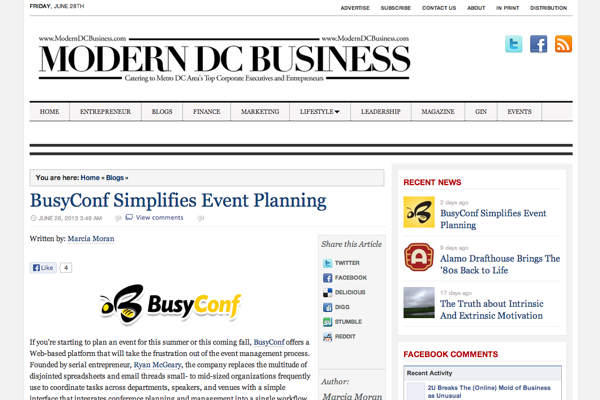
Previous page
Next page
Page 7 of 9
 by
Heather Myklegard
on
by
Heather Myklegard
on











